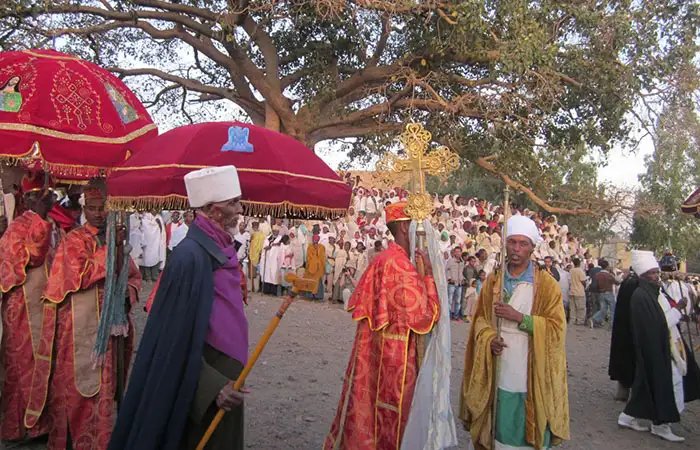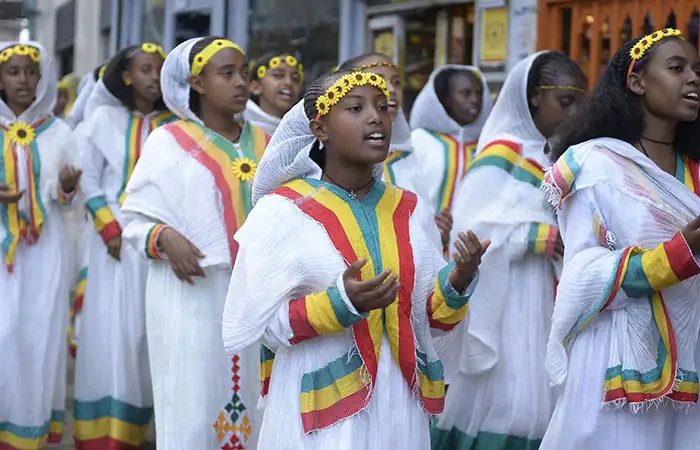Festivals In Ethiopia

Epiphany (Timket)
The Timket Festival – celebrating the epiphany – is one of the grandest occasions amongst Ethiopia’s Orthodox Christians. The celebration occurs on the 19 of January and commemorates the baptism of Christ. The event comes 12 days after the Ethiopian Christmas (also referred to as Gehenna) with lots of interesting features. The highly revered festival is considered a period of religious sanctification and spiritual revival amongst the orthodox Christians who take the chance to give thanks to God for spiritual nurturing. One of the most significant parts of the Timket Festival is the ‘Tabot’. The ‘Tabot’ is a term in Amharic used to refer to the Ark of The Covenant. During the Festival, replicas of The Ark of The Covenant are taken out from the local churches and carried through the streets making it a very colourful procession accompanied by children from Sunday school singing hymns and priests showing special choreographic moves with their praying sticks.

Enkutatash (Ethiopian New Year)
Ethiopia follows the Julian calendar with 12 months of 30 days each and a 13th month of 5 days (6 in a leap year). It’s for this reason that Ethiopia has been nick-named ‘the country with 13 months of sunshine’. The Ethiopian New Year, which is eight years behind the Gregorian calendar, falls on the date that the Queen of Sheba allegedly arrived back in Axum after visiting King Solomon in Jerusalem. In many places, children dressed in new clothes dance through the neighbourhood, distributing paintings (mainly of angles). They will in turn be given bread or money in return for their New Year wish. During New Year’s Eve, torches of dry wood are burned in front of houses while the crowds sing and dance. Everyone will then jump the ash to mark the shift from the old year to the new one.

Meskel
Meskel is one of the biggest religious festivals among Ethiopian Orthodox followers that commemorates a fourth century event where Empress Helena, mother of Constantine the Great, discovered the True Cross on which Christ was crucified. This festival is also registered with UNESCO as an element of the Intangible Cultural Heritage of Humanity.
The centrepiece of this unique festival is the lighting of a massive conical bonfire called a Damera and all the dancing and feasting surrounding it. The largest Meskel gathering takes place in Addis Ababa’s Meskel Square, where hundreds of thousands of people, both locals and tourists, gather to watch the colourfully dressed priests chant, pray and dance.
There are also equally magnificent celebrations across the country, including in Axum and Gondar.
